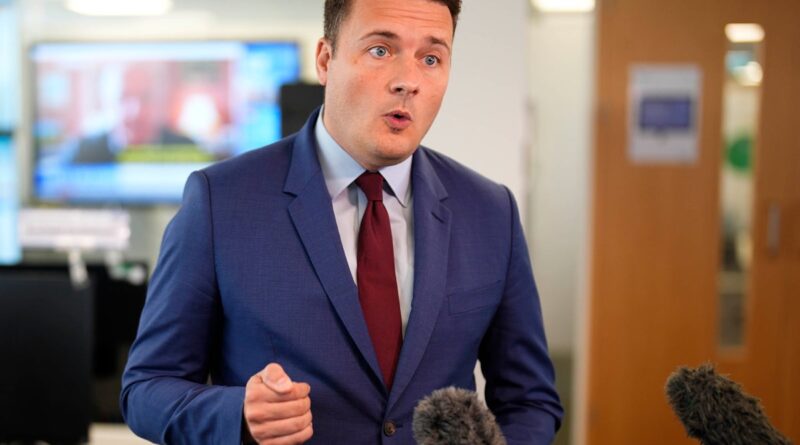Now nurses and GPs threaten to strike as NHS braces for winter chaos
NHS patients face months of winter strikes as nurses and GPs are the latest to threaten walkouts if their demands are not met.
The Royal College of Nursing (RCN) has warned its members feel “deeply undervalued” and will be balloted on industrial action if the government fails to increase its current pay offer of 3.6 per cent.
It comes as GPs have also threatened to strike, warning minister Stephen Kinnock that the government must action its list of demands to “avoid a future dispute”.
GPs, represented by the British Medical Association, are also set to hold a meeting in September where they will decide on holding further ballots over strike action. Last year, GPs took part in “collective action” over contract funding.
The fresh threats come after a five-day walkout by resident doctors ended on Wednesday, with thousands of staff walking out over the government’s refusal to meet their demands for a 29 per cent pay rise.
The Department of Health and Social Care (DHSC) said the government “hugely” values the work of nurses, but stressed the profession has had “two above-inflation pay rises”.
On Wednesday, Health Secretary Wes Streeting issued a warning to leaders at the British Medical Association (BMA), saying he is willing to resume talks in their ongoing dispute over pay and working conditions.
But he warned: “It should be clear to the BMA by now that it will lose a war with this government. It’s not too late for us both to win the peace.”
Professor Nicola Ranger, general secretary and chief executive of the RCN, said nurses feel “deeply undervalued”.
According to the union, 91 per cent of members voted to reject the pay award on a 56 per cent turnout, with more than 170,000 staff taking part.
It warned that the profession faces widespread vacancies, stunted career progression and years of pay erosion, and urged ministers to use the summer to agree an investment plan or face a ballot on industrial action.
Meanwhile, Unison, which represents other healthcare workers such as ambulance staff and porters, is consulting members on possible action in response to the 3.6 per cent pay award.
On Wednesday, The Independent reported that vital cancer operations were cancelled due to the resident doctors’ strikes. But the full scale of the walkouts is yet to be revealed, with NHS England due to publish data on how many operations and appointments were shelved this week.
However, it is expected that fewer patients were affected compared to previous strikes after hospitals were ordered to press ahead with as much pre-planned care as possible. In previous walkouts, the majority of non-urgent care was postponed.
The latest threat of action from nurses comes after they led the way on strike action over pay in 2022 and 2023, that quickly saw other public sectors, such as train drivers and teachers follow.
Announcing the results of the RCN’s consultation, Professor Ranger said: “My profession feels deeply undervalued and that is why record numbers are telling the government to wake up, sense the urgency here and do what’s right by them and by patients.
“Record numbers have delivered this verdict on a broken system that holds back nursing pay and careers and hampers the NHS. As a safety-critical profession, keeping hold of experienced nursing staff is fundamentally a safety issue and key to the government’s own vision for the NHS.
“Long-overdue reforms to nursing career progression and the NHS pay structure aren’t just about fairness and equity but are critical for patient safety.”
Following the doctors’ strike on pay, the BMA is now in dispute with the government over the number of resident doctors who are unable to get speciality training jobs. It claims that around 30,000 resident doctors have to compete for 10,000 specialist posts each year.
A DHSC spokesperson added in response to the RCN: “This government is clear we can’t move any further on headline pay but will work with the RCN to improve their major concerns, including pay structure reform, concerns on career progression and wider working conditions.”
